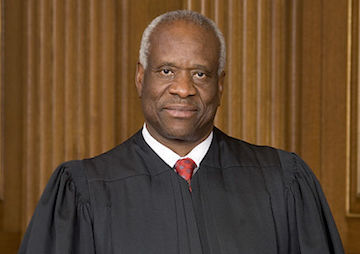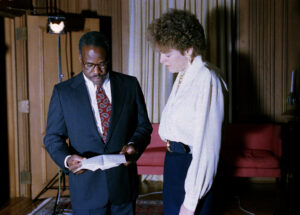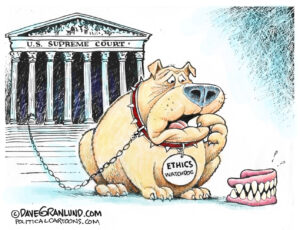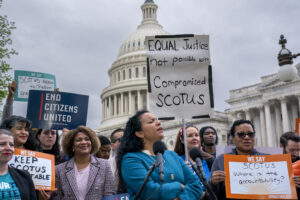Clarence Thomas Argues Strenuously to Keep Guns in the Hands of Domestic Abusers
Despite his protestations of Second Amendment rights, things didn't go well for the Supreme Court justice Monday. Steve Petteway, Collection of the Supreme Court of the United States
Steve Petteway, Collection of the Supreme Court of the United States
Steve Petteway, Collection of the Supreme Court of the United States
Things didn’t exactly go Clarence Thomas’ way Monday. The Supreme Court justice joined his berobed colleagues for not one but two rounds of decision-making on cases that engaged highly charged topics close to conservatives’ hearts: abortion and gun ownership.
The first ruling came down squarely on the opposite side of the issue from where Thomas stood.
Shortly thereafter, so did the second (via USA Today):
Gun ownership rights can be denied to people who commit reckless acts of domestic violence, the Supreme Court ruled Monday in a decision that brought a blistering dissent from Justice Clarence Thomas. …
The federal law was intended to deny guns to people convicted of violent acts against family members, based in part on research showing they are more likely to use guns domestically in the future. …
The justices disagreed—but Thomas, whose questions from the bench during oral argument in February were his first in a decade, said the result was a denial of a Second Amendment right.
“We treat no other constitutional right so cavalierly,” he said in his dissent. “In construing the statute before us expansively so that causing a single minor reckless injury or offensive touching can lead someone to lose his right to bear arms forever, the court continues to relegate the Second Amendment to a second-class right.”
Esquire’s Charles P. Pierce drew from a consonant source—Thomas’ late colleague, Justice Antonin Scalia—as he begged to differ with Thomas’ take on the top court’s outcome: “Note to the gun-fondlers in the shebeen—this is precisely what the late Antonin Scalia was talking about in Keller when he said Second Amendment rights were not absolute.”
Think Progress’ Laurel Raymond offered her own reality check following news of the ruling, refusing to join Thomas in viewing the issue on the diminutive level of “a single intentional nonconsensual touching”:
More than half of mass shootings involve a family member or intimate partner, according five years of data compiled by The Huffington Post. Of those, 81 percent of the victims are women and children. Victims of domestic violence are 12 times more likely to be murdered when a gun is involved.
According to the government attorney on Voisine vs. United States, “individuals who have previously … battered their spouses, pose up to a sixfold greater risk of killing, by a gun, their family member.”
The common thread linking many of America’s deadliest gun crimes is domestic violence, hence the federal law. Yet even when abusers are convicted of misdemeanor crimes for domestic violence — which don’t cover non-married partners who don’t live together or extended family members — and then fall under the Federal statue, implementation is difficult: If an abuser already has a gun, police have to know it — which is made difficult by the fact that not every state has a gun registry or gun sale database. And, without universal background checks, it’s very possible for those with domestic violence restraining orders to get guns even when legally prohibited.
America has a lot of problems with guns. Lack of access for domestic abusers is not one of them.
—Posted by Kasia Anderson
Your support matters…Independent journalism is under threat and overshadowed by heavily funded mainstream media.
You can help level the playing field. Become a member.
Your tax-deductible contribution keeps us digging beneath the headlines to give you thought-provoking, investigative reporting and analysis that unearths what's really happening- without compromise.
Give today to support our courageous, independent journalists.






You need to be a supporter to comment.
There are currently no responses to this article.
Be the first to respond.